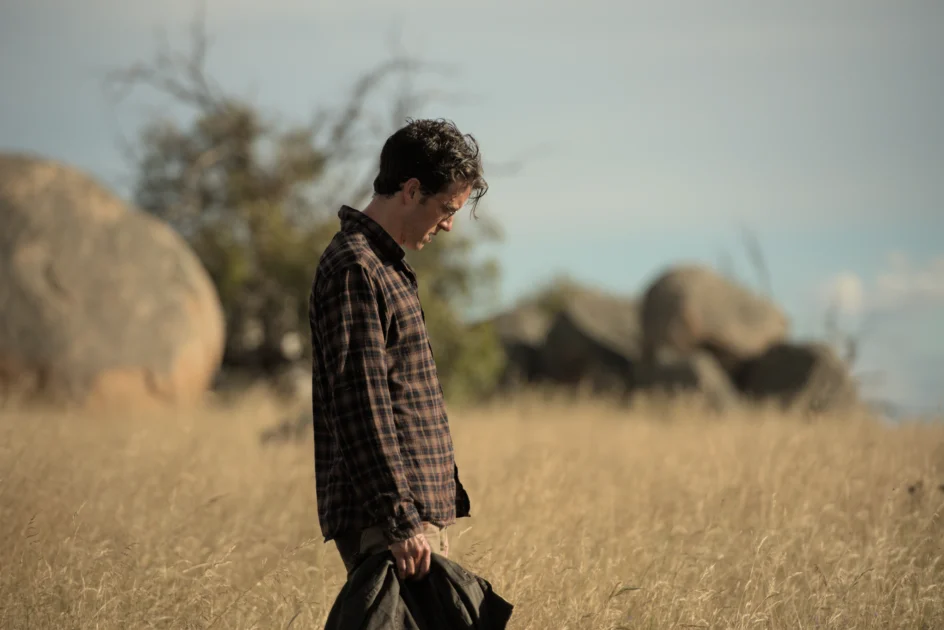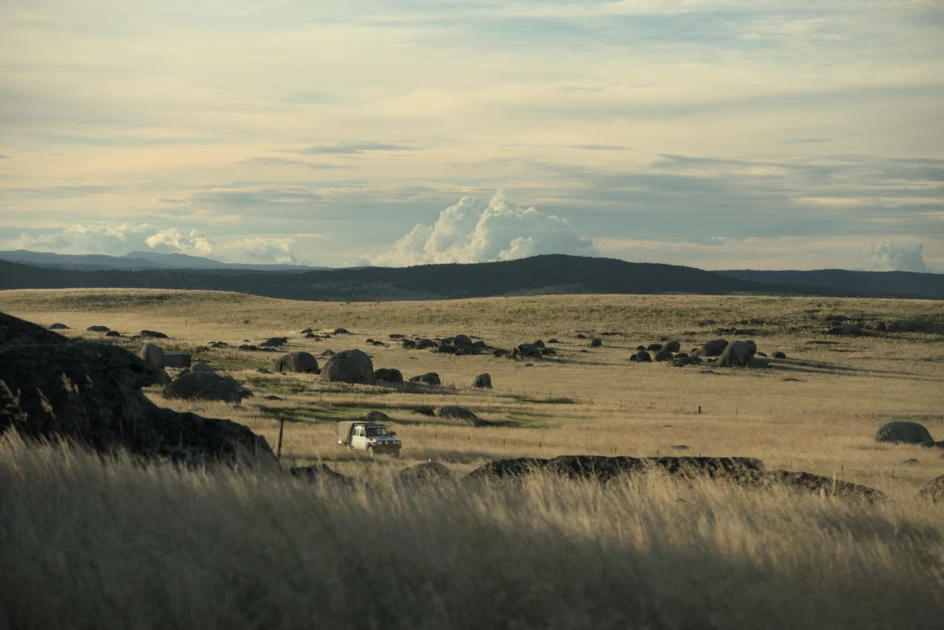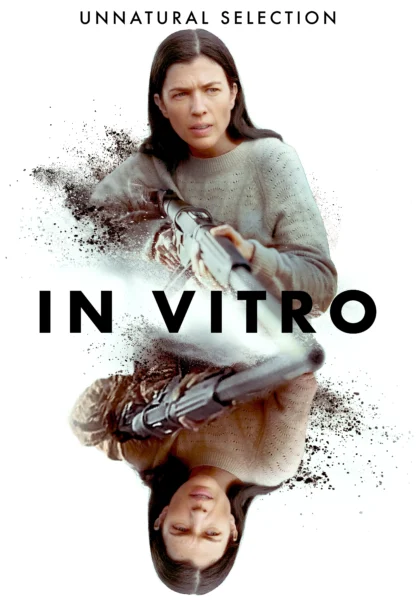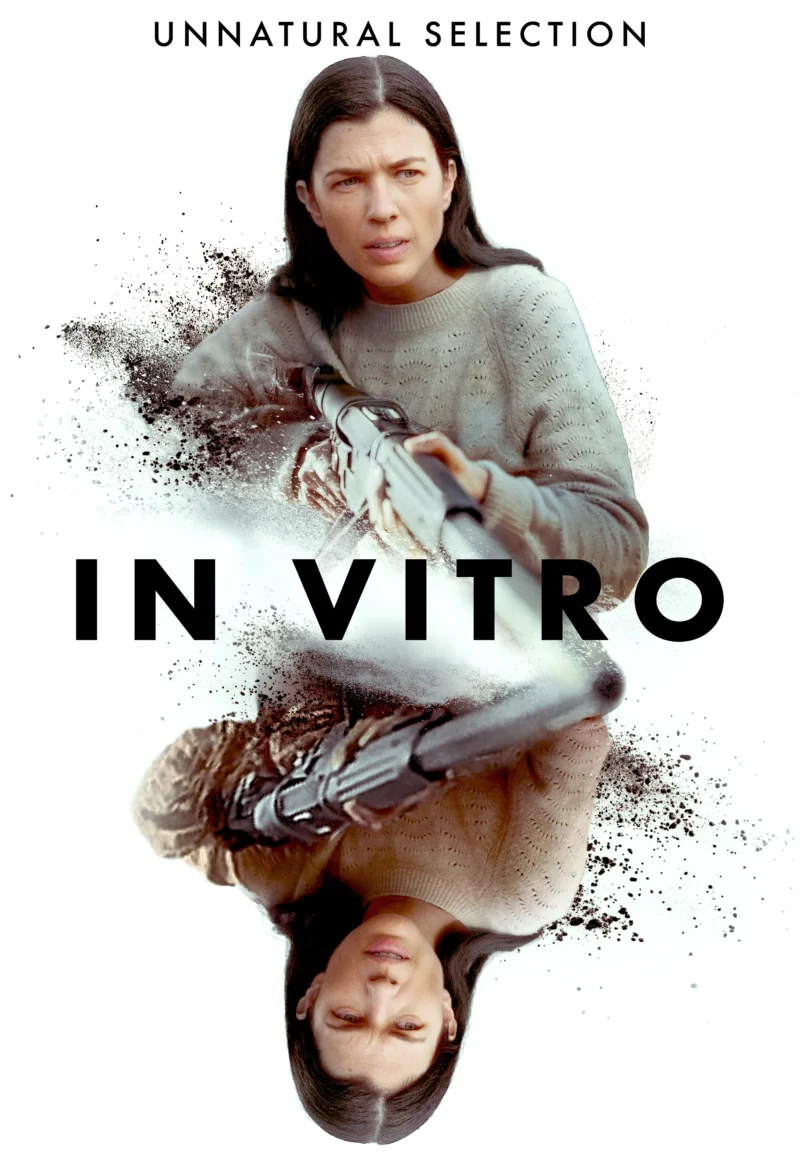Sometimes the most effective horror comes from the smallest spaces. In Vitro proves this theory with brutal efficiency, confining its biotechnology nightmare to three actors, one remote Australian farm, and a shed full of secrets that’ll make your skin crawl. Directors Will Howarth and Tom McKeith don’t just helm this production; they star in it, creating the kind of intimate pressure cooker that either explodes spectacularly or collapses under its own weight. Thankfully, In Vitro chooses explosion.
Innovation Becomes Invasion
The premise hooks you immediately: biotechnology that can produce livestock “ready in two weeks.” In drought-stricken Australia, where cattle farming teeters on the edge of viability, this sounds like salvation. But when your opening scene features a malformed cow being euthanized due to liver failure, you know this scientific breakthrough carries a price tag written in blood.
Jack (Ashley Zukerman) and Layla (Talia Zucker) operate their experimental farm with the paranoid secrecy of people who know they’re crossing lines. The arrival of farmhand Brady (Will Howarth) disrupts their carefully maintained isolation, and suddenly everyone’s asking questions nobody wants to answer.
While this review avoids major ending reveals, some scenes and stylistic choices are discussed. But no more than the offical trailer gave away
“Animal replication is faster, cheaper, and more consistent.”
Jack explains, but the film’s real genius lies in what remains unspoken. The technology works, but not on what you think.
Minimalist Filmmaking Maximizes Impact
Three actors. One location. Unlimited potential for psychological devastation. This constraint transforms every glance, every hesitation, every line of dialogue into a loaded weapon. There’s nowhere to hide when your entire cast could fit in a phone booth, and that vulnerability permeates every frame.
The cinematography is tight. Shelley Farthing-Dawe (who also did Dangerous Animals) captures the Australian outback in all its harsh beauty, endless plains under threatening skies that promise rain but deliver only dust and dread. The Filmmakers obviously put their cash in the right place, creating visuals that show farming life as it really is: brutal, unforgiving, and always one bad season away from disaster.
Performance Chemistry That Sells the Deception
The three-person cast carries enormous weight, and each actor delivers. Zukerman embodies Jack’s deteriorating mental state with subtle physicality, the headaches, the paranoid glances, the way he moves through familiar spaces like a stranger. Zucker makes Layla’s growing suspicion feel organic rather than plot-driven, especially in those quiet moments where she’s painting that spare room blue, preparing for a son who may never come home.
Howarth’s Brady serves as our audience surrogate, the outsider whose questions force uncomfortable truths into the light. When he threatens to expose Jack’s real operations, the film’s central tension crystallizes: how far will someone go to protect a lie that’s become their only truth?
Where Science Fiction Becomes Personal Horror
The film’s Elizabeth Harvest DNA becomes apparent when Layla discovers those layers of blue paint, each coat representing another attempt, another failure, another woman who thought she was living her own life. The revelation hits like a freight train precisely because the groundwork feels so naturalistic.
“You wouldn’t be able to do what needed to be done” serves as the film’s most chilling line, delivered with the casual cruelty of someone who’s rationalized the unthinkable. Jack’s justification – business failure, financial desperation, the promise of technological salvation rings terrifyingly true in our current economic climate.
Unfortunately, In Vitro loses momentum in its final act. The cat-and-mouse games between Jack and Layla feel forced, and that wide-open-space claustrophobia dissipates when the film needs it most. Jack’s sudden omnipresence strains credibility, and the tracking device explanation feels like narrative convenience rather than organic storytelling.
The shift from cattle to human subjects raises fascinating ethical questions that the film doesn’t fully explore. Why continue the charade of farming when the real breakthrough lies elsewhere? The business logic never quite adds up, leaving viewers with more questions than answers, though perhaps that’s intentional.

A Gem Worth Discovering
Despite its third-act stumbles, In Vitro succeeds as both science fiction and a psychological thriller. The film’s strength lies in its restraint; what it doesn’t show often proves more disturbing than what it does. When that final revelation arrives, it recontextualizes everything that came before, transforming a story about scientific ethics into something far more personal and devastating.
The Australian setting adds authenticity without relying on stereotypes, while the minimal cast approach creates genuine intimacy. These filmmakers understand that the most effective horror often comes from betrayal by those we trust most, and they execute that concept with surgical precision. In Vitro may not revolutionize the genre, but it demonstrates how effective filmmaking can transform familiar concepts into something genuinely unsettling. Sometimes the most terrifying monsters wear the faces of people we love.
In Vitro is rated
3.5 Petri dishes of ethical nightmares out of 5
Production by: Fictious, Screen Australia (in association with)
Distributors Madman Entertainment (Australia and New Zealand, 2023, 2024)
Saban Films (United States, 2025)

Streaming Options For In Vitro
Mother of Movies recommends these titles where technology meets nature head on: Add these to your watchlist: Remnant | The Institute | The Bayou | Bad Things
Mother of Movies Spoiler Free Trailer for In Vitro – For the Full Length One, Check the Official Website
In Vitro

Director: Will HowarthTom McKeith
Date Created: 2024-08-19 14:28
3.5


